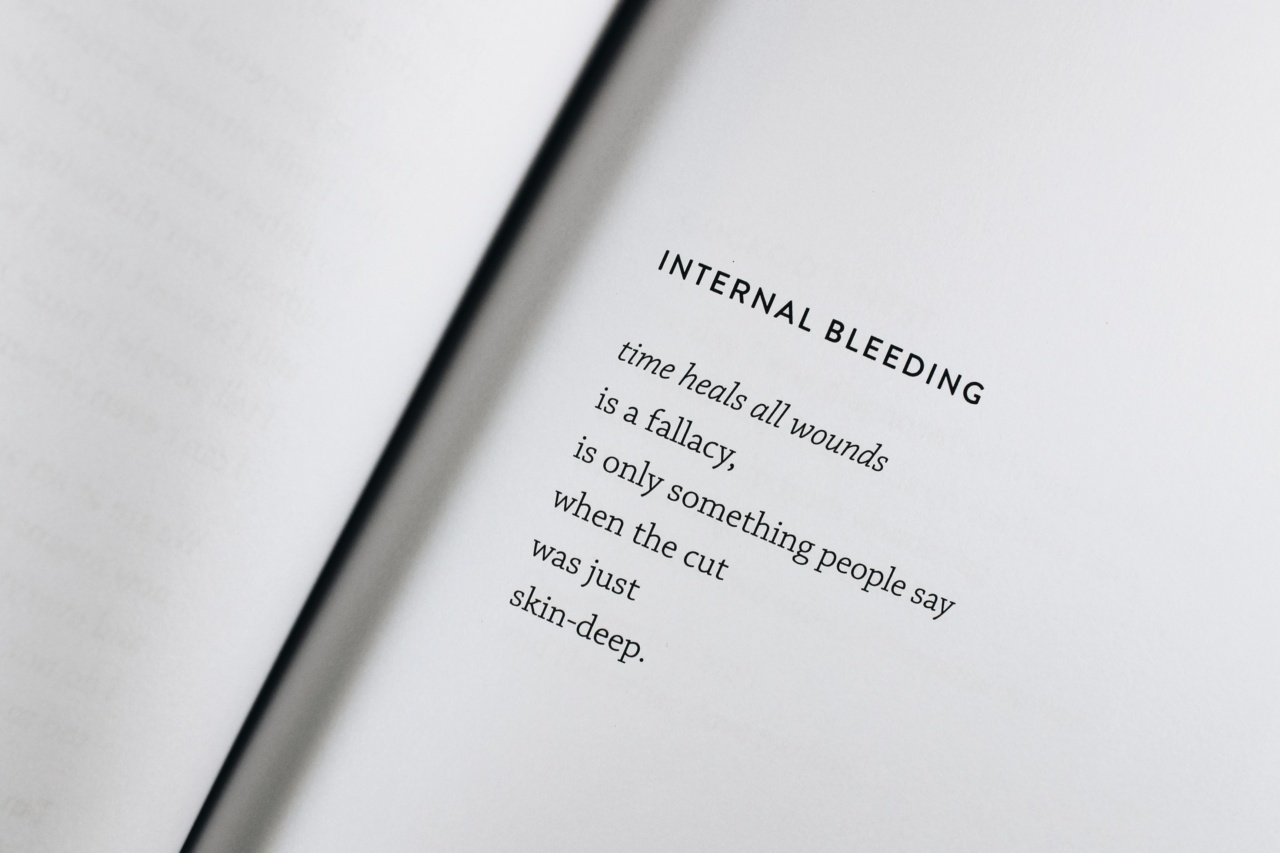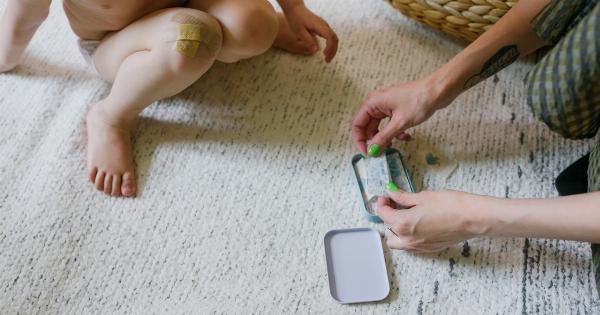Wound healing is a complex biological process that involves a cascade of events aimed at restoring the structural and functional integrity of damaged tissue.
While the physical aspects of wound healing are well understood, the influence of psychosocial factors on this process is only recently being recognized. In this article, we will explore the various psychosocial factors that have been found to impact wound healing.
The Mind-Body Connection
Research has consistently shown that there is a strong connection between the mind and the body. The brain has the ability to influence physiological processes through the release of stress hormones and neurotransmitters.
These chemical messengers can either promote or inhibit the wound healing process.
Stress and Wound Healing
Chronic psychological stress has been found to significantly impair wound healing. Studies have demonstrated that individuals who experience high levels of stress have delayed wound healing compared to those who experience low levels of stress.
This is thought to be due to stress hormones such as cortisol, which can inhibit the production of collagen, a key component of the wound healing process.
Social Support
Having a strong support network has been shown to positively influence wound healing. Individuals who feel supported by their family, friends, or healthcare professionals tend to have faster healing rates and reduced complications.
Social support can help reduce stress levels and promote a more positive outlook, which can in turn enhance the body’s natural healing mechanisms.
Depression and Anxiety
Depression and anxiety are common mental health disorders that have been found to negatively impact wound healing. Both conditions are associated with increased levels of inflammation and impaired immune function, which can impede the healing process.
Additionally, individuals with depression or anxiety may be more likely to engage in unhealthy behaviors such as smoking or poor nutrition, further hindering wound healing.
Personality Traits
Studies have identified certain personality traits that can influence the wound healing process. For example, individuals who are more conscientious and have a positive outlook tend to have better healing outcomes.
On the other hand, individuals who are neurotic or have a pessimistic outlook may experience delayed wound healing.
Emotional State
Positive emotions such as happiness, joy, and contentment have been associated with improved wound healing outcomes. These emotions are believed to promote the release of endorphins, which can enhance immune function and accelerate the healing process.
Conversely, negative emotions such as anger, sadness, and loneliness can have the opposite effect and delay healing.
Chronic Illness and Wound Healing
Individuals with chronic illnesses such as diabetes or autoimmune disorders often experience delayed wound healing. This is not only due to the physiological aspects of the condition but also the psychosocial impact it has.
Living with a chronic illness can lead to increased stress, anxiety, and depression, all of which can negatively affect the wound healing process.
Health Behaviors
Psychosocial factors can also influence health behaviors that are crucial for wound healing. For example, individuals who smoke have been found to have slower healing rates compared to non-smokers.
Smoking is associated with poor circulation and reduced oxygen delivery to the wound site, impairing the healing process. Similarly, individuals with poor nutrition or sedentary lifestyles may also experience delayed wound healing.
Psychological Interventions
Recognizing the impact of psychosocial factors on wound healing, healthcare professionals have begun incorporating psychological interventions into treatment plans.
These interventions may include stress management techniques, cognitive-behavioral therapy, and support groups. By addressing the psychosocial factors that may be hindering wound healing, these interventions can help optimize the healing process.
Conclusion
Wound healing is a complex process that can be influenced by a variety of psychosocial factors. Chronic stress, lack of social support, depression, and anxiety can all have detrimental effects on the healing process.
On the other hand, positive emotions, a strong support network, and healthy lifestyle behaviors can promote faster healing rates. By recognizing and addressing these psychosocial factors, healthcare professionals can enhance the overall healing experience for individuals with wounds.






























